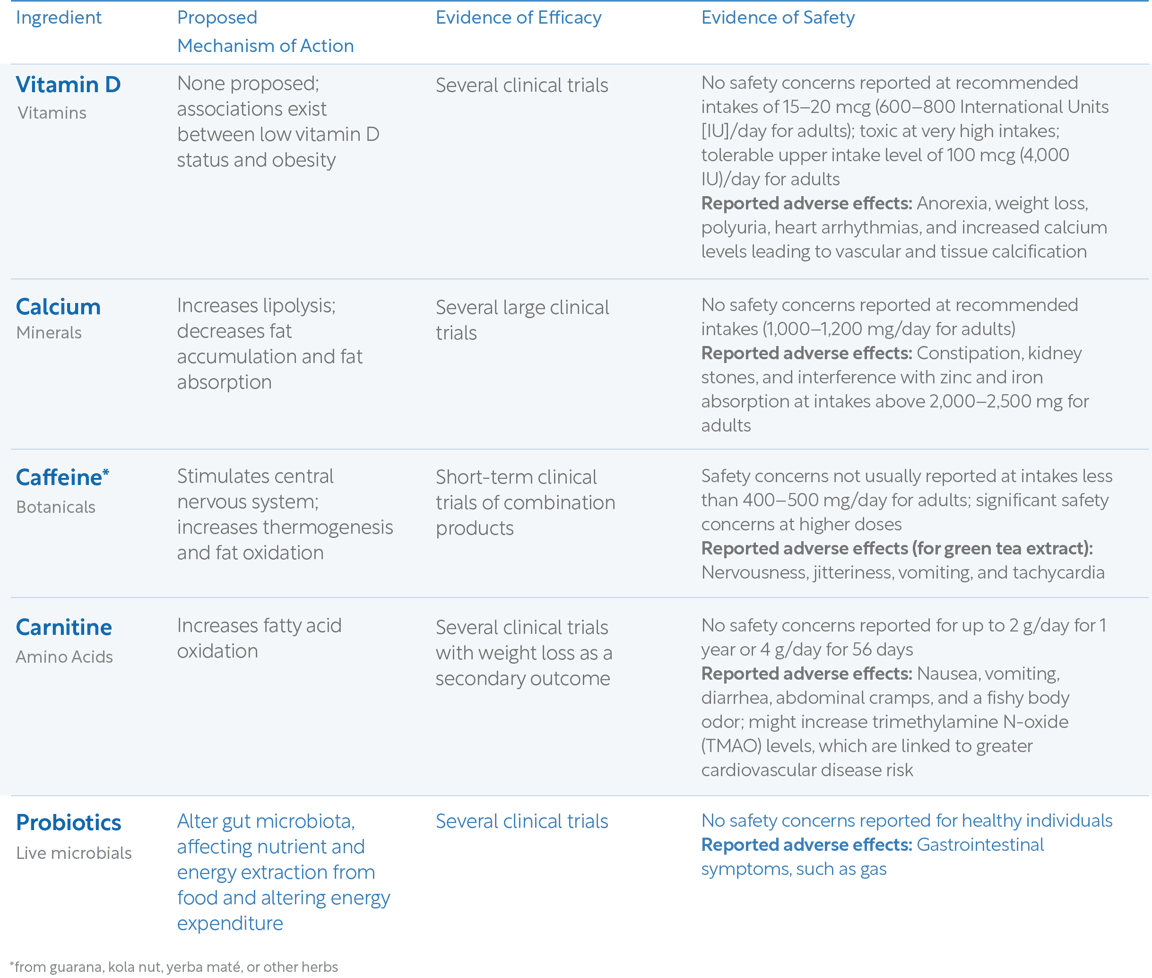Exploring weight management market & consumer needs
2024.11.05

Navigating the landscape of the weight management market
- Emerging weight management category
Weight management has emerged as one of the top seven wellness trends for 20241) (Figure 1). As the health benefits of weight management become more widely known, it has become an important indicator of an individual’s health level. Furthermore, the discussion on weight management has become even more intense as the number of obese and overweight people increases worldwide2), and people are looking for ways to control their weight.

Figure 1. Seven areas of growth in the wellness space for 2024
- Growth and composition of the weight loss supplement market
Figures for the weight management market indicate its growth potential. The weight management and well-being market size in 2023 was USD 20,937 million, and the five-year CAGR (2023-2028) was 3.8%, with an expected market size of USD 25,271 million in 20283) (Figure 2).
.png?width=972&height=403&name=Figure%202_Market%20Size%20for%20Weight%20Management%20and%20Well-being%2c%20and%20the%20Share%20of%20Weight%20Loss%20Supplements%20(2018-2028).png)
Figure 2. Market Size for Weight Management and Well-being, and the Share of Weight Loss Supplements (2018-2028)
Meanwhile, consumers seem to be interested not only in exercise and diet control but also in which ingredients are effective for weight management and the mechanisms of each ingredient. A significant 25% proportion of the weight loss supplement segment in the weight management and well-being market supports this. Moreover, the CAGR of weight loss supplements is relatively high at 3.1%4), which has led to overall growth in the weight management and well-being market. Given the importance of ingredient selection and development in this market, the market responds to the needs of increasingly segmented consumers with both classically known ingredients and newly discovered ingredients — from vitamins and amino acids to botanicals and probiotics5). As consumers look for products that are optimized for them, the weight loss supplement market has been growing with the growing interest of consumers in health.
Discovering consumer needs in the weight loss category
- Factors that Influence Consumers When Choosing Wellness Products
What are the characteristics of wellness-related products that consumers commonly prefer? A research institute proved that consumers prefer products tailored to individuals, with many respondents selecting “Effective/works for me” and “Addresses my specific needs.”6) This preference shows that individual needs have diversified according to specific health areas and that “there’s no magic pill for everyone” (Figure 3). Moreover, consumers in the United States generally expect high-quality products, as evidenced by the “High quality” item. While various factors can affect product quality, “sciencebacked” and “clean/all-natural ingredients” are two key indicators that consumers consider significant.6) This indicates that consumers place a high value on the scientific validation of ingredients and products (Figure 3).

So what criteria do consumers use to compare various products and select the product that best suit their needs? According to the aforementioned institute, consumers prefer clinically proven ingredients over those that are simply organic or natural in all product types, and in particular, the preference for clinically proven ingredients is three times higher for the supplements category7). In other words, clinically proven efficacy is the most important criterion for consumers when choosing a product. Product development capabilities based on the clinical verification of efficacy have become increasingly important in the current industry, reflecting common consumer needs across all health categories.
- Consumer Pain Points for Weight Loss Products : Possibility of Continuous Intake
In conclusion, it was confirmed that consumer needs for “clean/all-natural ingredients,” “science-backed,” and “clinically proven” products must fundamentally be met.
Product development is ongoing in the weight loss supplement market based on ingredients known to help with weight loss, such as amino acids, vitamins, botanicals, herbs, and pre/ probiotics.5) The problems are that not all ingredients have fully proven functionalities and some may have adverse health effects when taken continuously8) (Figure 4). Based on consumer trends according to a qualitative review of ingredients and the aforementioned clinical verification, these two problems are the factors that cause consumers to give up their choices. When all of this is considered, consumer needs for current weight loss products emphasize “safety and sustainability when taking them.” Therefore, it is generally necessary to use ingredients that are perceived by consumers as safe and effective. One thing to note is that compared to other ingredients that lack sufficient trial data to prove functionality or for which there are concerns about adverse health effects, probiotics have been proven effective and considered generally safe (Figure 4). Probiotics have expanded beyond gut health to the weight loss category to meet diverse consumer needs. In other words, probiotics can be used as a safe and effective solution to support a gradual and sustainable diet as an ingredient free from the issues related to continuous intake.

Figure 4. Comparison of the Efficacy and Safety of Each Ingredient Used in Weight Loss Supplements
References
1. McKinsey & Company, The trends defining the $1.8 trillion global wellness market in 2024, 2024 Top 7 wellness trends, 2024.01
2. US Centers for Disease Control and Prevention, Obesity fact sheet 508, 2022.07
3. Euromonitor, Market size of ‘Weight Management and Wellbeing’ in the Worldwide from 2023 to 2028
4. Euromonitor, Market size of ‘Weight Loss Supplement’ in the Worldwide from 2023 to 2028
5. FDA, FDA 101: Dietary Supplements, 2022.02
6. McKinsey & Company, The trends defining the $1.8 trillion global wellness market in 2024, Top 10 factors for US consumers when purchasing wellness related products, 2024.01
7. McKinsey & Company, The trends defining the $1.8 trillion global wellness market in 2024, US consumer preference for clinically proven efficacy vs organic or natural, by product type, 2024.01
8. NIH, Dietary Supplements for Weight Loss, Table 1 : Common ingredients in weight-loss dietary supplements, 2022.05










